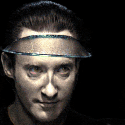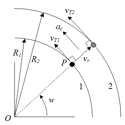|
Diogines posted:I love the premise of the Culture saga but I just don't like Consider Phlebias, I just couldn't get past the first 120 or so pages. The characters so far introduced were bland and the narrative, uninteresting. If I skip it, where should I start the series?
|
|
|
|

|
| # ? May 12, 2024 22:16 |
|
People seem to rave over them and the premise is VERY cool, but that book is just... terrible. I'll move on, thanks!
|
|
|
|
|
Diogines posted:People seem to rave over them and the premise is VERY cool, but that book is just... terrible. I'm a somewhat recent fan of The Culture and I gave up Consider Phlebas then moved on to Player of Games(which was great). So far the series just keeps getting better, Excession is my new favorite and I just finished reading it.
|
|
|
|
Diogines posted:People seem to rave over them and the premise is VERY cool, but that book is just... terrible. Don't give up on the whole series. Consider Phlebas is kind of the odd one out and sort of weird at that. If you're looking for the most accessible intro, Player of Games; if you're looking for the artsiest book, Use of Weapons.
|
|
|
|
CP is pretty good as a stand alone book (if that makes sense) but it's not really a Culture book in any way shape or form, it did get me hooked onto the series though.
|
|
|
|
Diogines posted:I love the premise of the Culture saga but I just don't like Consider Phlebias, I just couldn't get past the first 120 or so pages. The characters so far introduced were bland and the narrative, uninteresting. If I skip it, where should I start the series? Player of Games is the consensus.
|
|
|
|
Wow! Consider Phlebias was just unreadable but I am loving Player of Games. This book is *really* good! Already halfway done. It reminds me a lot of Larry Niven, but with much better characterization and pacing. Thanks Folks!
|
|
|
|
|
What did you find so bad about CP? I thought it was a pretty good book. The bit with the with the fat fella is a bit disturbing though.
|
|
|
|
Diogines posted:Wow!  Why? Because there are big space structures? I can't think of two writers I'd call more different.
|
|
|
|
To each their own I guess. I read ringworld as a teenager and thought it was awesome, then reread it a couple years ago and thought it was garbage. In comparison I've been reading the culture books for about a decade and things i've really enjoyed about them have shifted over the years but my experiences with them have always been very positive.
|
|
|
|
andrew smash posted:To each their own I guess. I read ringworld as a teenager and thought it was awesome, then reread it a couple years ago and thought it was garbage. In comparison I've been reading the culture books for about a decade and things i've really enjoyed about them have shifted over the years but my experiences with them have always been very positive. I always preferred his short stories. He still had fun with his high concept ideas about teleporters in your living rooms, or the tidal forces from a neutron star, but didn't have as much opportunity to bog things down. The Dark One fucked around with this message at 04:51 on Apr 4, 2012 |
|
|
|
I love Consider Phlebias now, but the first time I read it, it did not click with me at all. I went back to it after having read everything through Matter (Surface Detail wasn't out at the time) and I enjoyed it much more the second time around. The view from the outside of The Culture didn't feel as interesting to me when I didn't really care about or understand The Culture. When I did, the whole pointless fight against it felt that much more tragic.
|
|
|
|
I'm reading Consider Phlebas now, and I'd probably enjoy it a lot less if I hadn't read Banks' introduction to the Culture beforehand. With that context in mind it seems almost inevitable that Horza is going to fail, which is good because as a protagonist he's completely intolerable.
|
|
|
|
I remember reading about the Culture and about Consider Phlebas, going "wait, why would you fight against the Culture?", and sure enough Horza's reasons are silly as hell.
|
|
|
andrew smash posted:To each their own I guess. I read ringworld as a teenager and thought it was awesome, then reread it a couple years ago and thought it was garbage. In comparison I've been reading the culture books for about a decade and things i've really enjoyed about them have shifted over the years but my experiences with them have always been very positive. I'm reading Ringworld right now, actually, because I needed a new fix of not too complicated sci-fi to get me to sleep at night. I very, very nearly gave up right at the beginning. The concept is cool and all, but his prose is atrocious, and his characters read like the creations of an autistic teenager. Teela in particular makes me cringe constantly. I'll be done with it soon, but having read The Mote in God's Eye awhile ago, I get the impression it was Jerry Pournelle, of the two of them, who could actually write passable dialogue and characters.
|
|
|
|
|
Pope Guilty posted:I remember reading about the Culture and about Consider Phlebas, going "wait, why would you fight against the Culture?", and sure enough Horza's reasons are silly as hell. It's been awhile since I read the book, what did you find silly about his reasons?
|
|
|
|
Seldom Posts posted:It's been awhile since I read the book, what did you find silly about his reasons? IIRC horza thinks the idirans are preferable because they "believe in something" rather than nothing even if what they believe in is religious holy war. I want to say I'm partly remembering wrong because the culture clearly has its own ideology but maybe that's part of the stupidity of horza's reasoning.
|
|
|
|
Horza sees the human portion of the Culture as decadent, dependent parasites to their AI and the AI themselves as mechanical, un-life monstrosities. This doesn't mesh with reality (because as far as I can tell Banks' AIs are always goofy and chaotic and approximately human) but it's not really stupid either, just ignorant. I suspect his entire character is one big jab at science fiction tropes regarding AI.
|
|
|
|
Barry Foster posted:I'm reading Ringworld right now, actually, because I needed a new fix of not too complicated sci-fi to get me to sleep at night. One thing I remember about reading it as a teenager was that I found things off about the book but just assumed that they were products of it being "old fashioned." Then, much later, I discovered that there were all sorts of people writing as niven's contemporaries or even earlier that produced tremendously complex and nuanced sci-fi (vance, wolfe, poul anderson, lem, etc) and that larry niven is just an idiot manchild who wanted to write a book about himself having sex with tons of alien babes.
|
|
|
|
EDIT: Thinking of some other Dying Earth-derivative author, disregard this.
Tuxedo Catfish fucked around with this message at 14:51 on Apr 4, 2012 |
|
|
|
Tuxedo Catfish posted:Horza sees the human portion of the Culture as decadent, dependent parasites to their AI and the AI themselves as mechanical, un-life monstrosities. This doesn't mesh with reality (because as far as I can tell Banks' AIs are always goofy and chaotic and approximately human) but it's not really stupid either, just ignorant. If anything, Horza's views reflect a sentiment that advanced technology and easy living makes people weak and soft that I used to see in classic SF (which is a big part of why I decided I didn't like SF for awhile when I was a teenager). Is Heinleinian the word I want? I cheerfully admit that this is a kind of half-formed idea.
|
|
|
|
Tuxedo Catfish posted:Horza sees the human portion of the Culture as decadent, dependent parasites to their AI and the AI themselves as mechanical, un-life monstrosities. This doesn't mesh with reality (because as far as I can tell Banks' AIs are always goofy and chaotic and approximately human) but it's not really stupid either, just ignorant. He's the kind of person who'd vote for the fire-and-brimstone guy, even if he disagreed with all his views, because the candidate for the Democrats was a smug, big-city hotshot. The Dark One fucked around with this message at 16:03 on Apr 4, 2012 |
|
|
|
Pope Guilty posted:If anything, Horza's views reflect a sentiment that advanced technology and easy living makes people weak and soft that I used to see in classic SF (which is a big part of why I decided I didn't like SF for awhile when I was a teenager). Is Heinleinian the word I want? I cheerfully admit that this is a kind of half-formed idea. That's sort of ironic given the fact that horza's entire race is a piece of highly advanced and weaponized biotechnology.
|
|
|
|
Pope Guilty posted:I remember reading about the Culture and about Consider Phlebas, going "wait, why would you fight against the Culture?", and sure enough Horza's reasons are silly as hell. I think Consider Phlebas works best if you come into it with absolutely no knowledge about the Culture. Slowly bringing the reader to realize that Horza is fighting for the bad guys is the only neat trick in an otherwise pretty blah piece of generic space opera, and that's kind of ruined when you spend the whole book going "When are they going to get to the Culture? That place sounds awesome!".
|
|
|
|
Maybe it was just me, but I also find Banks' treatment of drones/AI (especially in CP, which I read first) to be somewhat fresh. I was waiting for the drone that got dragged along with the gang in to the tunnels to turn out to be a Culture spy, or backstab Horza/the whole gang, give them up to the Idirans, desert them, or something other than just be, well, a person who happens to be an advanced computer. Most other sci fi I've read deals with androids/AIs/robots/drones as 'other,' and a lot of the time this means they end up the antagonists, mysterious, unsympathetic, or at least filling some sort of plot device role. In the CP, the drone is just... a grumpy person who gets dragged along but tries to help. I though that was kind of cool. They're just (way faster with cooler senses/abilities) people.
|
|
|
|
|
The drones in the Culture series are generally excellent all around, the one with the ceramic(?) plating in Look to Windward being my favourite.
|
|
|
|
Was that the drone that was genuinely thousands of years old, or the hipster who just wanted a big case for the look of it?
|
|
|
|
Old one I believe, it's been a while since I've read that book though.
|
|
|
|
Prolonged Priapism posted:Maybe it was just me, but I also find Banks' treatment of drones/AI (especially in CP, which I read first) to be somewhat fresh. I was waiting for the drone that got dragged along with the gang in to the tunnels to turn out to be a Culture spy, or backstab Horza/the whole gang, give them up to the Idirans, desert them, or something other than just be, well, a person who happens to be an advanced computer. Most other sci fi I've read deals with androids/AIs/robots/drones as 'other,' and a lot of the time this means they end up the antagonists, mysterious, unsympathetic, or at least filling some sort of plot device role. In the CP, the drone is just... a grumpy person who gets dragged along but tries to help. I though that was kind of cool. They're just (way faster with cooler senses/abilities) people. Neal Asher does this in his Polity and Spatterjay books, too, and while it took me aback a little at first as time went on I found it kind of cool.
|
|
|
|
Just started Consider Phlebas (I can't start a book series in the middle, nor can I listen to a bit of an album or watch the last half hour of a film. I am a broken man.) and it seems alright to me so far. I'm having trouble picturing the Idirans and the Medjels, though, because my imagination has been dulled by 20 years of video games and non-scifi-or-fantasy novels. Do you guys see Idirans as giant humanoids with three awkward legs or more insect-like?
|
|
|
|
Unexpected delivery of Stonemouth to my Kindle this morning. Yay for pre-orders.
|
|
|
Prolonged Priapism posted:Maybe it was just me, but I also find Banks' treatment of drones/AI (especially in CP, which I read first) to be somewhat fresh. I was waiting for the drone that got dragged along with the gang in to the tunnels to turn out to be a Culture spy, or backstab Horza/the whole gang, give them up to the Idirans, desert them, or something other than just be, well, a person who happens to be an advanced computer. Most other sci fi I've read deals with androids/AIs/robots/drones as 'other,' and a lot of the time this means they end up the antagonists, mysterious, unsympathetic, or at least filling some sort of plot device role. In the CP, the drone is just... a grumpy person who gets dragged along but tries to help. I though that was kind of cool. They're just (way faster with cooler senses/abilities) people. Banks' treatment of AI has always been my favourite feature of his books, and I imagine that's the same for a lot of people. It's an inherently egalitarian concept - he basically makes no distinction between whether a conscious intelligence is running on organic or inorganic hardware. Intelligence is intelligence, and that's it. It's the kind of social model I'd hope we could adopt if we were ever to create strong AI (we won't, of course, we'll treat them as subhuman slaves). I particularly like that he completely subverted the skynet 'super computer gets out of control, begins to improve itself spontaneously, wipes out creators' trope. The Minds may or may not have been an accident thousands of years ago, but when they started learning exponentially they just decided that being cool to their creators was the rational and humane thing to do. 'AI takes over humanity' is usually presented as horrifying - with the Culture, it made perfect sense. As I've said before, I'd sure as hell prefer the world to be run by a Mind.
|
|
|
|
|
Barry Foster posted:Banks' treatment of AI has always been my favourite feature of his books, and I imagine that's the same for a lot of people. It's an inherently egalitarian concept - he basically makes no distinction between whether a conscious intelligence is running on organic or inorganic hardware. Intelligence is intelligence, and that's it. It's the kind of social model I'd hope we could adopt if we were ever to create strong AI (we won't, of course, we'll treat them as subhuman slaves). What is ethical with respect to AI will depend a lot on how it is developed, I think. If it is based on a model of the human brain then anything less than full rights would be a great crime. If it's a purely artificial creation, with behavioural parameters completely within our control then it is conceivable we might be able to create an AI for which different standards could be applicable. Also, quite a few sci-fi settings go the "AI is a good thing" path nowadays. The Golden Age by John C Wright and the aforementioned Polity novels spring to mind. Neurosis fucked around with this message at 08:59 on Apr 5, 2012 |
|
|
Neurosis posted:What is ethical with respect to AI will depend a lot on how it is developed, I think. If it is based on a model of the human brain then anything less than full rights would be a great crime. If it's a purely artificial creation, with behavioural parameters completely within our control then it is conceivable we might be able to create an AI for which different standards could be applicable. Surely that's where things become a bit sticky, though? I agree completely on the human brain model, but why would creating an intelligence that didn't closely resemble ours necessitate different standards and/or rights? If we could control its behavioural parameters (presumably after the initial design process), then could we say it's an actual AI? Then again, we can control human behavioural parameters quite easily, which I'd argue further muddies the waters. Banks, it must be said, pretty much writes his AIs as humans with amazing abilities, so it's hard to go to him for a model of a truly different form of intelligence. Still, I feel leery about 'not like us, therefore without rights' arguments - though if I've misunderstood your argument, that's cool.
|
|
|
|
|
I agree that the default position should be a full set of equal rights because of the moral dangers of applying different sets of standards. But in some cases it might be not be a problem of ethics if the AI did not possess certain rights. Perhaps a given right might be a meaningless right to them if they are truly an alien intelligence, I don't know. Probably a redundant argument since for the sake of safety, as I said above, equal status is preferable. This has reminded me of the argument I've read before that an AI based on the human brain, which we agree should have equal status, might be the most likely to act against humanity because of all the survival and competitive impulses built into it from our biology, which I find kind of ironic.
|
|
|
|
paint dry posted:Just started Consider Phlebas (I can't start a book series in the middle, nor can I listen to a bit of an album or watch the last half hour of a film. I am a broken man.) and it seems alright to me so far. I'm having trouble picturing the Idirans and the Medjels, though, because my imagination has been dulled by 20 years of video games and non-scifi-or-fantasy novels. Do you guys see Idirans as giant humanoids with three awkward legs or more insect-like? Medjels are easy, but I'm pretty sure I'm unconsciously replacing them with actual lizard aliens from some film or comic or something. I could have sworn he outright describes Idirans as big stumpy quasi-hominids. I picture them as somewhere between an elephant and a traffic cone.  Dwellers are the worst though, I reread the description he gives the first time they're introduced in The Algebraist three times and I still couldn't figure out what I was supposed to be imagining.
|
|
|
Neurosis posted:I agree that the default position should be a full set of equal rights because of the moral dangers of applying different sets of standards. But in some cases it might be not be a problem of ethics if the AI did not possess certain rights. Perhaps a given right might be a meaningless right to them if they are truly an alien intelligence, I don't know. Probably a redundant argument since for the sake of safety, as I said above, equal status is preferable. I think we're definitely in agreement, then, with regards to a general 'better safe than sorry' attitude on AI rights. Not that, as with your second point, we are often particularly given to that kind of outlook. I've no problem with giving a human model AI rights, but I sure as hell wouldn't want it anywhere near the 'fire all nukes' button. Then again, I don't really want an organic human near it either (or for one to exist). If we eventually decide to make our own gods, they should be as little in our image as possible, I think. EDIT Tuxedo Catfish posted:Dwellers are the worst though, I reread the description he gives the first time they're introduced in The Algebraist three times and I still couldn't figure out what I was supposed to be imagining. It's not perfect (a bit cartoonish, but then again, so are the Dwellers), but I think this chap's drawing is a pretty good way to visualise them. He certainly includes all the disparate features Banks mentions, though who knows if it matches up correctly. http://wunderbear.deviantart.com/art/The-Algebraist-Dweller-Study-138198515 Barry Foster fucked around with this message at 09:58 on Apr 5, 2012 |
|
|
|
|
Pope Guilty posted:If anything, Horza's views reflect a sentiment that advanced technology and easy living makes people weak and soft that I used to see in classic SF (which is a big part of why I decided I didn't like SF for awhile when I was a teenager). Is Heinleinian the word I want? I cheerfully admit that this is a kind of half-formed idea. quote:IIRC horza thinks the idirans are preferable because they "believe in something" rather than nothing even if what they believe in is religious holy war. I want to say I'm partly remembering wrong because the culture clearly has its own ideology but maybe that's part of the stupidity of horza's reasoning. These are the reasons I remember now, and I don't think of them as being particularly silly. To me, one of the big themes of Bank's Culture books is the post-scarcity society. One his Big Questions is: why go on living if everything is provided for you? Or what do you do with your life if you don't have to do anything? So Horza's position is that he thinks this kind of life is not worth living, and he wants to fight against it. I think that makes CP less interesting, but it works as a great intro to PofG, where the question is more explicit. The protagonist in PofG decides to devote his life to meaningless games, is thrust into a society where games are everything, and then deposited back into a society where no one cares about games again. In a further smash to the reader's face, it turns out that he got "gamed" by the SC minds that run his society, and that his actions essentially destroyed a society that accepted his own value system in the name of one that didn't. That's more than I meant to write, but I think those two books are a great one-two punch on the meaning of life in a post-scarcity society, and you can't help but think that Banks is commenting to some extent on the difference between the developed and developing worlds, or the rich and the poor generally.
|
|
|
Seldom Posts posted:These are the reasons I remember now, and I don't think of them as being particularly silly. To me, one of the big themes of Bank's Culture books is the post-scarcity society. One his Big Questions is: why go on living if everything is provided for you? Or what do you do with your life if you don't have to do anything? Not to get too political because this isn't D&D, but the idea that the only way to find meaning in life is through a daily struggle for existence is by no means a true one. Many (me included) would argue that it's a dominant ideology of our current, (somewhat artificially) scarcity-based society, and one predicated on exploitation and authority. Not having anyone starving to death, having to work for 15 hours a day, or even spend their lives having to pay off debt (ie, the Culture) wouldn't suddenly and inevitably make everyone brainless, hedonistic blobs. Sure, it may make some people brainless, hedonistic blobs, but it'd also leave a lot of other people free to pursue whatever they want to pursue. Hell, if they want to live miserable lives, they're free to do that as well - but I think that's a fair price to pay for an egalitarian society where no-one is forced to suffer. I'm not having a go at you, and I do see where you're coming from, because it's hard for us, in the society we live in, to imagine what it'd be like to live in a post-scarcity society. We're inevitably culturally conditioned to think that certain things make life meaningful.
|
|
|
|
|

|
| # ? May 12, 2024 22:16 |
|
Barry Foster posted:Not to get too political because this isn't D&D, but the idea that the only way to find meaning in life is through a daily struggle for existence is by no means a true one. If you're suggesting that I'm arguing that, then you've misread my post. I think that Banks raises that question and leaves the answer ambiguous. quote:... but it'd also leave a lot of other people free to pursue whatever they want to pursue. You're assuming this is a good thing, and I'm saying that Banks is asking you to question that assumption. As an example, what do you think of the way Gurgeh chose to live his life and what happened to him? The Culture allowed him to choose the life he wanted, and then manipulated him into destroying another culture that reflected the values he had chosen. Was the Culture right to do that? quote:We're inevitably culturally conditioned to think that certain things make life meaningful. I am saying that the question of 'meaning' for most people depends on the extent to which the scarcity problem is solved for them. So when Banks raises it, he's really talking about the rich and the poor.
|
|
|























